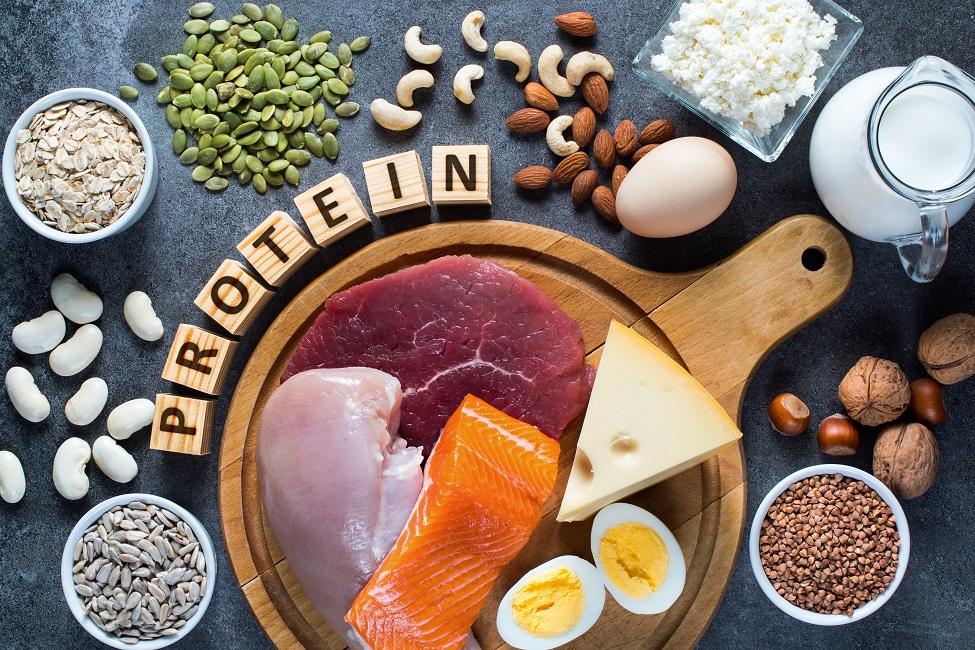#health #protein #diet #eat
“When people increase their protein intake, they start eating fewer calories”–Paul Ebeling
According to a study, consuming a larger percentage of protein when dieting not helps prevent the loss of lean body mass, but also improves the choices of food eaten.
An analysis of data from several studies on weight loss reveals that even a slight increase in the amount of protein consumed, from 18% of an individual’s food consumption to 20%, significantly impacts the food choice quality of the individual.
According to the researchers, it is significant that a slightly higher consumption of protein that is self-selected while dieting promotes higher green vegetable consumption, as well as reduced consumption of added sugar and refined grains.
It was also discovered that a moderately higher protein consumption provided an additional benefit in that it reduced lean body mass loss, which is commonly linked to weight loss.
Eating plans that make use of calorie restrictions to lose weight can often result in a reduction in the consumption of healthy foods containing micronutrients like zinc and iron. Consuming higher protein levels is often linked to healthier results, but the connection between protein consumption and quality of eating plans is not understood that well.
According to the researchers, investigating the association between protein consumption and quality of the eating plan is significant due to the fact plan quality is generally suboptimal in the United States, and weight loss diets high in protein are popular.
The analysis data was gathered from over 200 women and men taking part in clinical studies within the last 20 years. The participants were aged between 24 and 75 and had a BMI that classified them as either obese or overweight. They were all asked to lose weight by adhering to a 500-calorie-deficit diet and received regular nutrition counseling and support sessions for 6 months.
They received nutrition advice according to the American Diabetes Association and the Academy of Nutrition and Dietetics guidelines. They were asked to allocate 18% of their calorie consumption to lean protein, which included dairy, legumes, fish, unprocessed red meat, and poultry, and to use up the balance of their calories on whole grains, vegetables, and fruits. They were asked not to consume salt, sugar, refined grains, and saturated fats.
They maintained detailed food diaries, which were then analyzed for ratios and specific protein sources, specific categories of foods eaten, and quality of diet.
The individuals who selected their own protein consumption were then classified into a lower-protein approach with 18% of overall calories derived from protein or a higher-protein approach with 20% of the overall consumption of food derived from protein.
The study concluded the following:
- The individuals in the low-protein group, as well as the high-protein group, lost the same amount of weight of approximately 5% of their body weight over 6 months
- Individuals in the higher-protein group generally chose a healthier food mix to consume
- Individuals in the higher-protein group increased green vegetable consumption and reduced consumption of refined grains and sugar
- Individuals in the higher-protein group had an improved ability to preserve their lean muscle mass
Protein is a reward for our brains!
Eat healthy, Be healthy, Live lively









